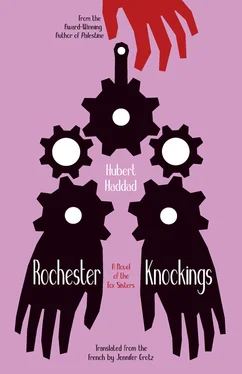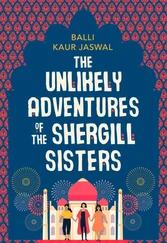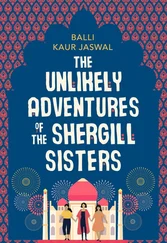On the day of the funeral, hiding in her room, all ready to go, Kate considered the comings and goings on the avenue. A hearse hitched to four white horses was waiting for the end of the casket-closing ritual. Her sisters and Janet were calling her from across the house to come for the farewell kiss. Were they unaware that for her there was no farewell? Dear Mother lived always in her dreams, busy, worrying over the least snail wandering across her thin arms, but she no longer wanted to approach, all of a sudden passed through to the other side of the big glass wall that prevents hands from holding, breaths from caressing the eyelids, and scents from reminding you.
That night, from her bed, an outline had appeared to her behind the glass windows, between the curtains. There had been so many of these in her dreams, these wanderers from the void. Solitary, they came and went from one world to the other and often, in town, they were recognizable by their hunched-over gait and by the steam on their too-smooth faces.
“What are you waiting for, come down!” Margaret cried out, forcing open the door. “It’s the farewell! It’s the farewell!”
Kate, unpredictable, ran into the warm room without saying a word. An undertaker from the funeral home was about to seal the lid of varnished wood. Using both hands as he lifted the plank, she pushed it back down like the god of doors.
“I forbid you!” she screamed, furious, before practically lying down in the coffin, blanketing the dead woman under her flowing hair.
But the box was screwed closed and the convoy reached the Buffalo Street cemetery undelayed. Other cars were waiting in front of the entrance. It was on foot that the Fox family and their friends followed the hearse along a road lined with yews. Placid after her outburst of desperation, Kate walked in a distracted step behind her sisters who, from time to time, threw worried glances back at her. She was astonished by their extraordinary resemblance: the same outfits, black taffeta dresses and bonnets, even the same complicated hairstyle of a bun with raven wings. Despite the age difference, their features seemed copies, with their narrow mouths and those huge eyes of Hindu deities on large faces wide as two hands. It did not escape her that Maggie was fighting in vain against her older sister’s influence, so obvious was the mimicry. Similarly, Kate studied the details of the little formal crowd as they advanced along. Her brother David, whom she hardly knew, was going in the heavy step of a farmer in the company of their father, an old man indifferent to the world. How was it that her father and mother had conceived two distinct generations of offspring, nearly twenty years apart? Had they been separated from one another, the time for each of them to rebuild their lives, or were they hiding some hecatomb of miscarriages and childhood diseases?
The convoy was now walking on the slopes of a vast park planted with stone slabs upright or lying down, crosses carved in granite, steles and truncated columns. The scattered stones seemed to drift like little urban islands on a grassy sea of lawn out of which small areas of chapels and mausoleums emerged, isolated by cypress trees, the sinister enclosure of the common grave.
Each person in his own thoughts, Kate perceived the regulars from one house or the other, their first supporters Amy and Isaac Post, so scrawny on their patch of yellowed grass, George Willets, carrying his dignified colossal head askew above a giant body, Mr. and Mrs. Jewell also, and Charlene Obo under her veil beaded with obsidian pearls. Lucian Nephtali, dressed more somberly than usual, leaned into the tip of an ivory-handled cane and seemed to follow her eyes with the strange fixity of a painted portrait. Was he trying to hypnotize her? The court doctor Brinley Simmons, who was one of the experts in the Episcopalian commission before getting involved in the game of spiritualism and, on occasion, treating mediums, somberly observed the rudimentary work of the gravediggers. Could a specialist in violent death who cut up the cadavers of suicides and murder victims, like a farmer would his chickens, have any feelings about the afterlife?
But now they were tipping the coffin down by means of leather straps and thick ropes. Above the heads of the gravediggers, as if emerging himself from the tomb, Alexander Cruik pronounced a few words about the remission of sins, the resurrection of the flesh, and of life everlasting.
“It’s the living who must be consoled,” he added in his message to the audience. “Come into Salvation free of charge! No salary exists for the soul. God alone is responsible for those gone. .”
Kate, frightened by that glaring pit, crept backward away from the assembly and fled toward the slopes. While wandering among the stones, she looked here and there at the epitaphs: “Here lie my chains,” “No tears for the sinner,” “Your Word is Truth.” One quotation from the apostle John stopped her the longest: Whoever believes in me, though he die, shall live. Raising her head, she saw a few dozen meters away a waxy specter in a top hat emerge from the misty gloom. What else could she do but go over to meet it?
Having also escaped from the group, Lucian Nephtali stood affected on a mound in the middle of which was placed a slab of pink granite engraved with two names, one encrusted with lichens, the other biting cleanly into the stone.
“Is that you, Kate?” he said, folding up in a quick gesture the handkerchief that until then, he’d kept in between his palm and the handle of the cane.
“Ah,” she whispered. “I’m sorry. .”
“It’s all right, come here. .”
Kate yielded to that persuasive tone and was soon in front of the grave. She read a single name: Astor, Nat Astor, but could only decipher the last syllable of the other name taken over by a leprosy, and imagined with no trouble a family connection between the two, surely a son and his mother.
“It’s me who owes you the apology,” said the man. “I snuck out a little early to visit my friend.”
“Yes, I know. .” stammered the young girl.
“You know?” Lucian Nephtali murmured with a bit of amused disbelief. “You know who rests in this grave. .”
“I meant that it’s probably a young man and his mother who died when he was still a child. .”
“That’s exactly right,” Lucian observed without much surprise. “Nat lost his mother when he was much younger than you: tuberculosis. He would never stop mentioning her, talking about her. He had very few images to hold on to, but that doesn’t change anything. Forgetting, on the contrary, clarifies the principle of love. The less one is encumbered with memories, the more whole memory is and the more partiality is definitive. . He swore only by her, his mother was his only true love. The pension that he received from a father who’d gone back to England left him free, too free undoubtedly, entirely abandoned to this holy absence. He lived in a state of mourning that had no recourse, do you understand? He bullied, drank, gave himself over to the worst excesses, and at the same time devoured with an always-flawless intuition the best American and British writers of today. Have you read Elizabeth Browning? And the great Nathaniel Hawthorne? Herman Melville, he too, is guaranteed to surprise you. As would the extraordinary Emily Brontë who died unnoticed, so young, just one year before that unhappy Edgar Allan Poe, gifted with double vision, stricken by every curse. .”
Lucian paused, aware of the impropriety of this panegyric in a cemetery. Pensively, he stabbed the tip of his cane into the frozen ground with increasingly pointed blows.
“When they were children,” he continued in a more playful tone, “Emily and her brother and sisters imagined an extraordinary universe, the Glass Town Confederacy, which they made come alive taking turns with all sorts of writings, geographical maps, newspaper articles, dramas, poems, and all this in a sort of always frenzied ever-expanded fiction by all available means. .”
Читать дальше












